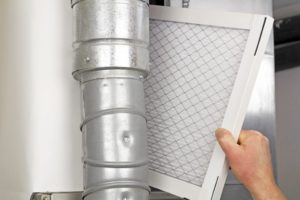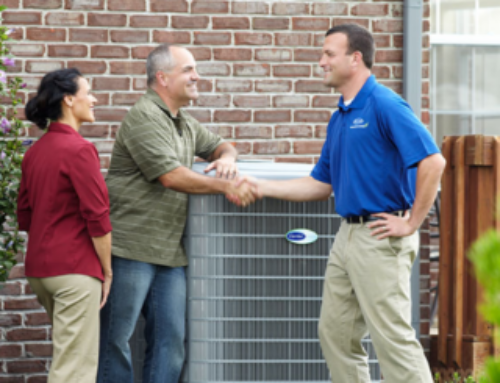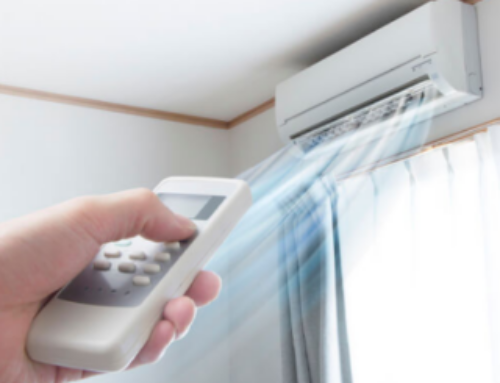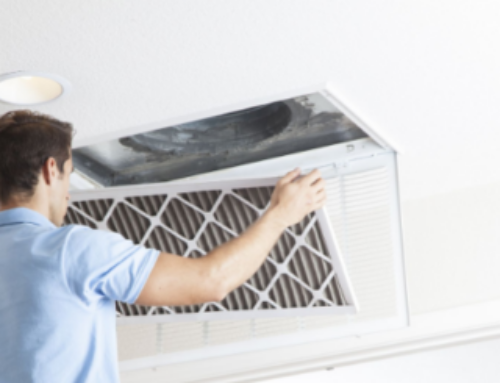 Frequently Asked HVAC Questions: Air Filters
Frequently Asked HVAC Questions: Air Filters
The furnace filter or air filter in an integral part of your HVAC system operates properly. The filter is not permanent and must be changed on a regular basis to maintain peak performance from your HVAC system. With winter coming into full swing you’ll want to make sure your furnace is running properly and at its peak. We’ll see more about the Frequently Asked HVAC Questions about Air Filters.
How do I know which HVAC filter is the one I need?
Filters protect your HVAC system from airborne contaminants that could cause all sorts of issues, including mechanical problems with your furnace. Furnace filter works to improve air quality in your home. They come in many shapes and sizes, in order to find the one that best suits your needs and fits with your HVAC system.
Example HVAC filter types and differences.
Fiberglass/Synthetic Filters
Fiberglass or synthetic filters are a cheap and disposable option for your furnace. They catch up to 80% of particles 50 microns and larger and 25% of particles between 3 to 10 microns. Considered minimum protection, fiberglass/synthetic filters prevent dust and dirt from building up on heat exchangers, fan motors, and other surfaces. The larger particles are trapped and eliminated, so your furnace components remain clean. They allow your system to have maximum airflow but don’t filter harmful contaminants affecting your health.
Polyester Filters
Polyester filters are made using the highest quality materials available and are median-sized. They trap and eliminate 80% to 95% of particles 5 microns or larger. A polyester filter costs fours time more than the average fiberglass/synthetic filter, but it offers more protection against pollutants that cause health issues.
Electrostatic Filters
Electrostatic filters use self-charging fibers to attract particles out of your air. You can purchase disposable or washable electrostatic filters depending on the requirements of your furnace. Washable versions offer a MERV rating between 4 and 10 and last considerably longer than the average filter. Maintenance on a washable filter requires soap and water to wash the filter and let it completely dry before reinstalling it. If you install it before it completely dries, you run the risk of mildew and mold growth.
Pleated Filters
A pleated filter offers high-efficiency results by trapping particulates 0.3 microns in sizes, such as bacteria and viruses. Pleated filters are more efficient and last longer compared to fiberglass/synthetic filters. They eliminate more pollutants from your air without sacrificing airflow within your system.
HEPA Filters
High-efficiency particulate air, or HEPA, filters provide high-end filtration by trapping up to 99% of particles 0.3 microns or larger. Even though they are excellent at eliminating indoor pollutants and create a healthier environment in your home, they can drastically reduce your system’s airflow, costing more money in energy usage.
(Taken from HVAC.com)
The Importance of having good quality Air Filters
Good quality filters keep out contaminants for a healthier environment in your home. Quality air filters also protect your HVAC system from damage. Changing your filters and using high-quality filters can add years of life to your HVAC system.
Advantages of high-quality filters
- High-quality filters are essential for your health and protect components of your home as well, including furniture.
- Quality air filters lengthen the lifespan of your HVAC system and minimize repairs. The cost-benefits ratio is off the charts!
- Besides saving money on repairs, with high-quality filters, you will save money on your energy bill because your HVAC system will be able to run more efficiently.
When should I change my Air Filter?
The answer is: there are a couple of variables and it really depends on your home environment and the filters you use. The cheap filter needs to be changed more often. A home with pets, many people, construction inside or outside all should change their filters more often.
Filters typically come with recommended times to change. High-quality filters should be changed about every three months. However, if you see your filter is really dirty, change it. Dirty filters lower the air quality in your home and can cause system damage as well as health issues.
Here are some things to consider when deciding how often to change out your filters.
- Occupants in the house
- Air quality in your home
- Filter type your system requires
- Construction or remodeling in or around your house
- Pets in the home
When you have more contaminants in the home, from pets, people, and activities, air filters should be changed more frequently.
How do I know if my Air filters needs to be changed?
Air filters usually come with a manufacturer recommended time to change. However, sometimes it’s worth while changing out the filter sooner. Here are some signs to look out for that may indicate changing the filter sooner should be done.
- The filter is really dirty and gray.
- The house feels very dusty.
- The HVAC system is running longer than usual.
- You’ve passed the manufacturer’s recommended time to change filters.
Running your HVAC system without Air filters.
Although your system will run without the filter, it should NOT be done. Running your HVAC system without an air filter can cause serious issues including:
Condensate Drain Problems:
Without a filter for your air conditioner, your condensate drain won’t be able to perform its job of draining condensation and moisture from your unit. Condensate accumulates on the Freon tubing and then drips down to the pan. The pan drains outside and helps your air conditioner with dehumidifying the air in your home. The filter keeps debris from gathering in your condensate drain and clogging it, causing water damage to your system.
Air Quality Problems:
The most common problem with running an air conditioner without a filter is decreased indoor air quality. Dust is stirred in a home when the AC unit is running and continuously cycles throughout the air, never settling. The dirt, dust, and debris is sucked back up through the intake, pumped back through the air vents, and remains suspended in the air until someone breathes it in or it clogs the unit.
Freon Tube Problems:
An air conditioner pulls air from your home and blows it across copper tubes filled with Freon. These tubes are always wet and when unfiltered air blows across them, dirt and debris stick to the condensate and coat the fins. When this occurs, your system performs inefficiently and overloads your air conditioning system.
Ductwork Problems:
Any dirt and debris that doesn’t stick to the Freon tubes will travel down the line to your ductwork. The debris will accumulate inside the ductwork, becoming trapped by the ribbed aluminum tubes. This allows moisture to build up inside your ductwork, creating the perfect place for mold to grow. Mold spores will begin to circulate throughout your home whenever the HVAC system is running.
(Taken from HVAC.com)
Have more HVAC questions?
Gibber Services have answers for all your HVAC questions and concerns. Feel free to give us a call or contact us today if you have questions more specific to your home. Working with a reliable and trusted, local heating and air conditioning contractor will give you the answers you need to care for your home HVAC system. Our number is 901-422-1258 and our expert HVAC team is waiting for your call!
About The Author








